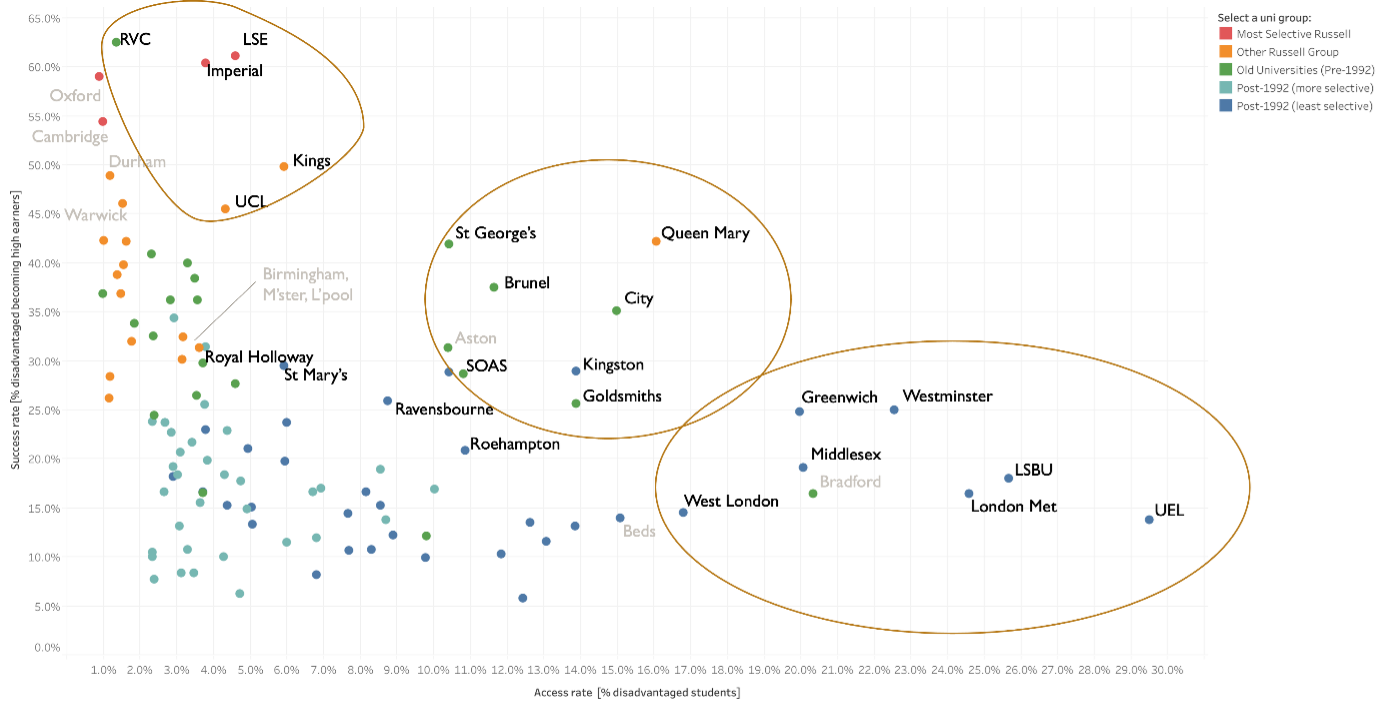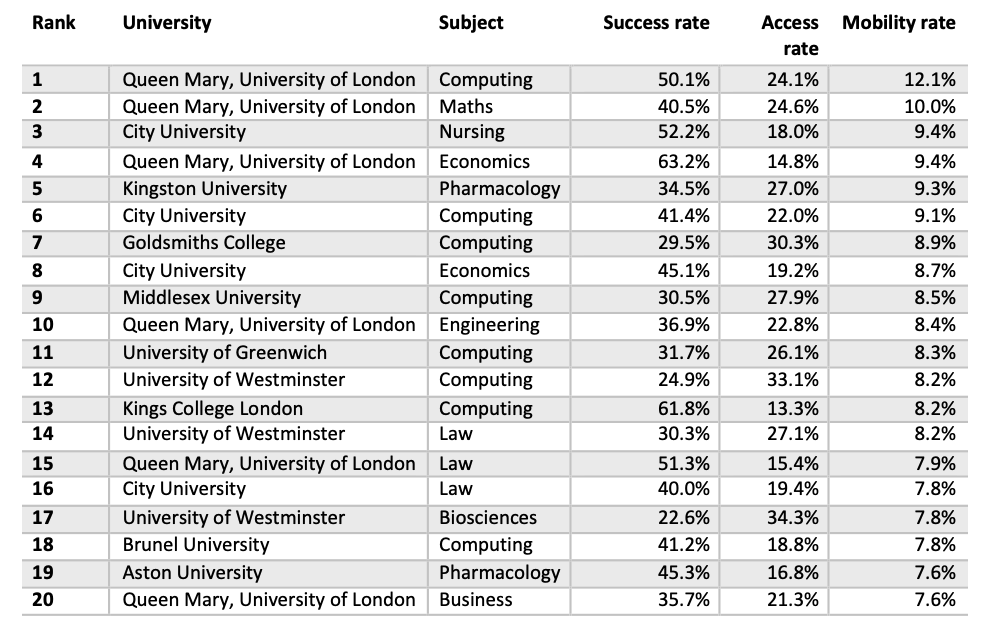London’s universities and social mobility today
Our roundtable began with an opening presentation from Richard Brown, Visiting Fellow at University of London, which looked at the role of education in London’s perceived success as a social mobility hotspot.
Education is often seen as a strong determinant for social mobility. The government’s Social Mobility Commission has identified education at 16 as the principal factor in explaining pay gaps between rich and poor young people at 28.
Though London does well against many different social mobility indices, it scores particularly strongly on the government’s social mobility index on measures such as higher education access. Compared to 27 per cent across England, 44 per cent of Londoners on free school meals go on to higher education. Higher education can be crucial for social mobility, equipping people with the skills and knowledge that allows them to access well paid jobs and enter higher income brackets. This is particularly important in highly-competitive job markets such as London’s.
The Sutton Trust/Institute for Fiscal Studies index for social mobility has created a combined mobility score for universities by looking at both access (what percentage of students at the institution were receiving free school meals at 16), and success (what percentage of these students enter the top 20 per cent of incomes by age 30). The institutions that rank highest on this index are located in London, combining high access rates with good earnings outcomes – and this applies across the board from high tariff to more accessible institutions.
This success partly results from intake: London institutions draw high proportions of their students from the city, which has high levels of participation overall. London universities also do well in attracting children from some ethnic minority groups, particularly those with higher attainment levels.

Some London universities also have a course offer that appeals to students from less advantaged backgrounds. University courses that score the highest for social mobility nationally include pharmacology, computing, law, economics, and business. These reflect a tendency for young people from disadvantaged backgrounds to opt for more vocational courses, rather than arts, humanities, or languages. Institutions in London offer some of the most successful and accessible courses in these categories – 19 of the top 20 courses are in London higher education institutions.
